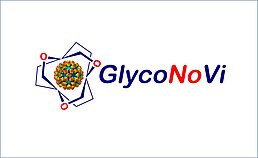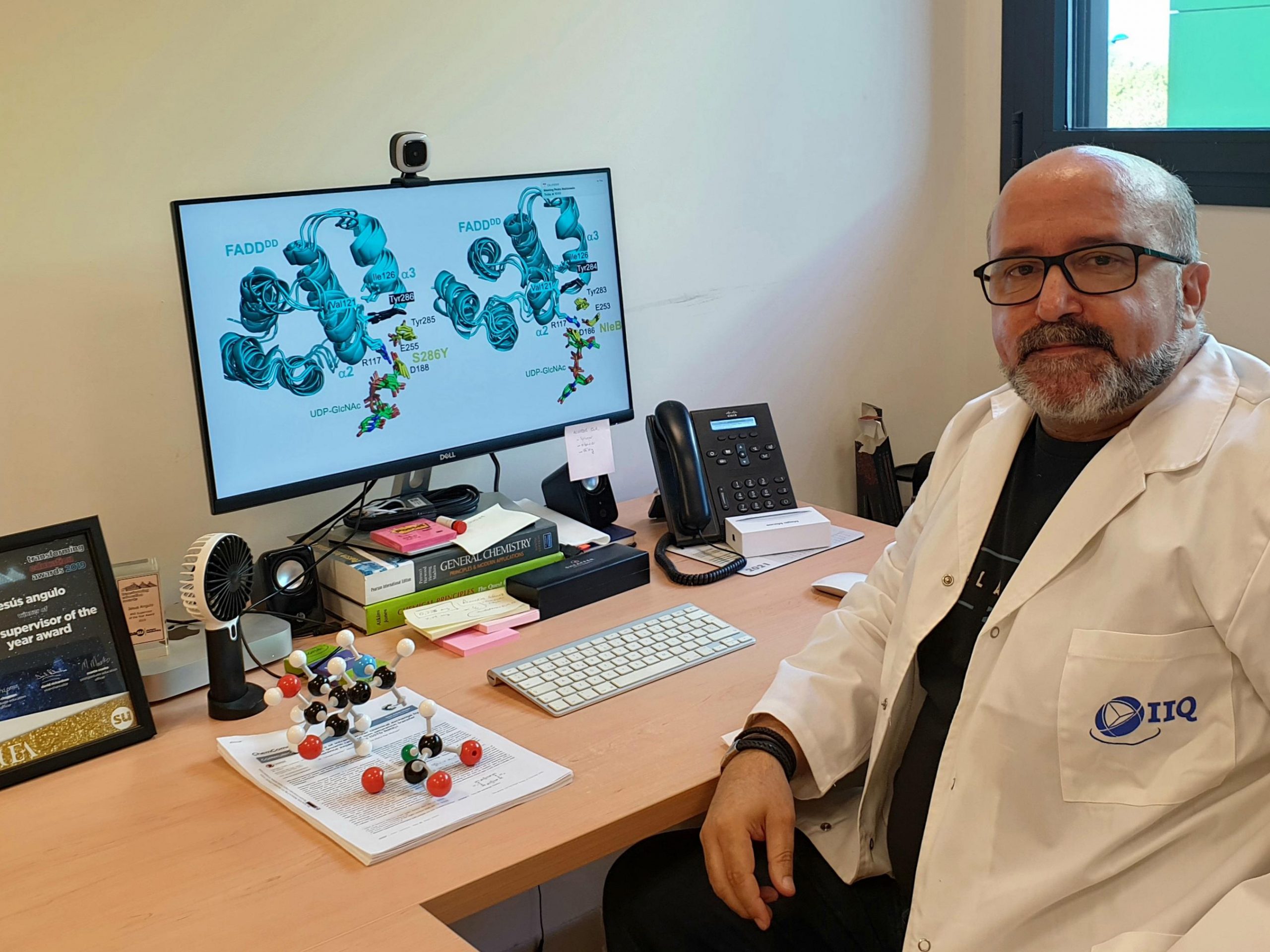The GlycoNoVi project (Understanding the role of Glycans in Human Norovirus Infections: a Key to Unlock New Therapies), involving 6 European academic leaders (among them the Biomolecular Interactions and Structural Glycobiology research group at IIQ, led by Dr Jesús Angulo) and 3 international industrialists in the field of glycoscience, glycovirology and norovirus (NoV) biology, represents an international multidisciplinary coordination for the development of new molecules that neutralise norovirus, the main cause of non-bacterial gastroenteritis worldwide. GlycoNoVi has received funding (2.4M EUR) from the MSCA – Horizon Europe programme (HORIZON-MSCA-2021-DN-01; grant agreement No. 101072717).

Dr Angulo’s group at the IIQ leads the area of structural glycovirology, which aims at the molecular characterisation of biomolecular interactions between protein receptors on the surface of the norovirus capsid and natural ligands (glycans from breast milk, HMO= Human Milk Oligosaccharides), contributing to the elucidation of infection mechanisms at the molecular level for different emerging variants of the Norovirus, in order to then develop new molecules and new diagnostics in order to prevent viral infection.
The international network is made up of five academic partners – in addition to UniFi, the CNRS (France), the IIQ-CSIC (Spain), the Erasmus Medical Centre (Netherlands) and the University of Lubeck (Germany) and three industrialists: Inbiose (Belgium), Glycom AS (Denmark) and Research4Life (Italy). Partners also include the University of Manchester and the company ICENI, which are participating in GlycoNoVi thanks to the resources allocated by the British government. The project starts in 2023 and will last a total of four years.
Given the lack of therapies for the treatment and prevention of norovirus, its extremely rapid mutations and its uncontrolled spread facilitated also by climate change, according to the World Health Organization (WHO), norovirus is the main cause of serious diseases transmitted through food or water, and is considered a possible cause of pandemics. “The GlycoNoVi research project,” says Jesús Angulo, “combines the specific and multidisciplinary knowledge of European leaders specializing in glycosciences. It brings together experts in carbohydrate synthesis, enzymatic and fermentative synthesis, structural biology, computational chemistry, glycodiagnostics, virology and epidemiology.”
The project has just announced the recruitment of 10 PhD students, one of whom will carry out his research activities at the IIQ “acquiring the necessary and unique skills in a cutting-edge field.”
OFFER OF PLACES to carry out the doctoral thesis: On the project website, www.glyconovi.eu. The IIQ offers a doctoral thesis in the research line “Screening And Structural Characterization Of Ligands Of Emerging NoV”



